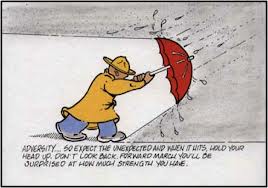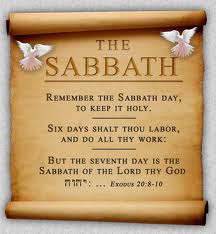History of Mormonism: Another Testament of Jesus Christ
The history of Mormonism is about Jesus Christ -- His teachings, His role as Savior of the world, and His visit to the ancient Americans. Jesus Christ led people through prophets in the Americas just as He led through prophets in the eastern hemisphere, as recorded in the Holy Bible.
The Book of Mormon covers Jesus Christ's teachings through prophets from 600 B.C. to 400 A.D. These Book of Mormon people brought with them the record of the Jews, the Bible, when they left Jerusalem. They were obedient to God's teachings and commandments. Having prophets among them, their revelations were recorded, as were their histories. One of the last prophets, Mormon, abridged the records of these people which are entitled the Book of Mormon.
Although Christ's teachings are throughout the Book of Mormon records, I want to focus on the greatest event of the Book of Mormon: the appearance of the resurrected Jesus Christ to the Ancient Americans.
 At the time of Christ's crucifixion, the people in the Americas had a terrible storm. The storm was so great that the thunder shook the earth. Tornadoes and earthquakes and fires followed the storm. Most of the inhabitants were killed in the tumultuous storms. The sky became dark while the earth continued to groan. The darkness was thick like a vapor. No light from the moon or stars could be seen; no candle or fire could be lit. People all over were heard crying and howling over the loss of their families and friends. This darkness lasted three days.
At the time of Christ's crucifixion, the people in the Americas had a terrible storm. The storm was so great that the thunder shook the earth. Tornadoes and earthquakes and fires followed the storm. Most of the inhabitants were killed in the tumultuous storms. The sky became dark while the earth continued to groan. The darkness was thick like a vapor. No light from the moon or stars could be seen; no candle or fire could be lit. People all over were heard crying and howling over the loss of their families and friends. This darkness lasted three days.
While it was still dark, the voice of the Lord, Jesus Christ came to the people telling them of the destructions throughout the lands and that He was the one who caused it. He spoke asking why the people didn't listen to His prophets and repent. He now called them to repent. There was silence in the land until Christ once again spoke to the people. He told them how he desired to gather them as a chicken gathers her chicks under her wings, but they would not. His voice left the people and they began to weep and howl over their losses again. However, the light came with the rising of a morning sun and the earth stopped groaning and stood still and solid. (Although the whole face of the earth had changed.)
After this, the people were observing the great changes all around when they heard something they couldn't decipher; it was a voice that was not harsh nor loud, but did pierce their souls and cause their hearts to burn. They heard an unknown voice again. The people looked up towards heaven from where the sound was coming. Not until the third time did the people understand the voice; it was the voice of God, the Father introducing His Son, Jesus Christ. "Behold my Beloved Son, in whom I am well pleased, in whom I have glorified my name -- hear ye him." (3 Nephi 11:7 in the Book of Mormon)
The people saw a man dressed in white descending from heaven. He came down and stood in the midst of the people. They were astonished and thought it was an angel appearing to them. Then Christ introduced Himself saying, "Behold, I am Jesus Christ whom the prophets testified shall come into the world. I am the light and the life of the world; and I have drunk out of that bitter cup which the Father hath given me, and have glorified the Father in taking upon me the sins of the world, in the which I have suffered the will of the father in all things from the beginning." (3 Nephi 11:10-11)
Christ invited the people to come and feel the wounds in his hands, feet and side so that they would know that He was the Christ the prophets told about. The people went one by one and touched their Savior's scars. When they were done they all shouted hosannas to the Most High God and fell to the earth to worship Christ. After that, Jesus Christ ordained Nephi with the priesthood power to baptize.
Christ did many of the same things for these people as He did for the Jews; he blessed the children, healed the sick, lame and blind. He ordained apostles and set up laws and ordinances for His Church to be upon the American continents.
I love reading the accounts of Jesus Christ in America and like to imagine what it was like for those people to be taught directly by Him. If you want to read the account for yourself, you can order your own copy of the Book of Mormon here.
An Introduction to the Book of Mormon (video)
A Book of Scripture with a Promise! (video)
What is the Book of Mormon? click here
Q&As about the History of Mormonism: click here
Numerous references to search about Jesus Christ... click here



























